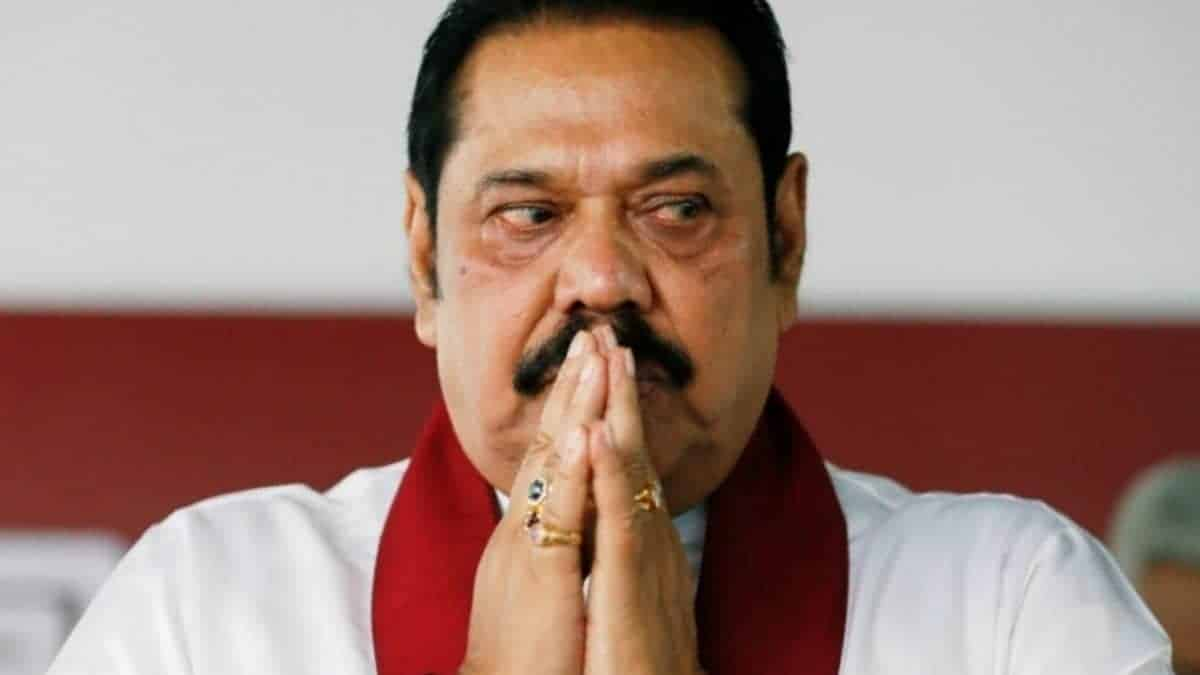All 26 Sri Lankan ministers resign, yet Mahinda Rajapaksa retains his position as Prime Minister
Crisis in Sri Lanka: The economic crisis has resulted in a significant shift in political support for Rajapaksa, who came to power pledging stability in 2019.

Crisis-hit At a late-night meeting on Sunday, Sri Lanka’s government resigned en masse from their jobs, according to the education minister. Mahinda Rajapaksa, on the other hand, will stay Prime Minister.
The resignations come just hours after the Prime Minister’s Office dismissed reports of Mahinda Rajapaksa resigning, calling them “fake” and stating that no such plans exist at this time.
After resigning as Youth and Sports Minister, Prime Minister Mahinda Rajapaksa’s eldest son, Namal Rajapaksa, tweeted: “I have informed the Secretary to the President of my resignation from all portfolios, effective immediately, in the hopes that it will aid HE and the Prime Minister in their decision to restore stability to the people and government of #LKA. My commitment to my voters, my party, and the people of #Hambanthota (SIC) remains unwavering.”
Students demonstrated against the economic crisis outside Peradeniya University earlier on Sunday. Cops deployed tear gas and water cannon to disperse the demonstrators, who were disobeying the government’s weekend curfew.
Hundreds of people joined the opposition leaders’ march in Colombo before it was stopped by a huge number of police and soldiers using assault guns outside the home of opposition leader Sajith Premadasa.
In a new attempt to stop anti-Rajapaksa protests, the Sri Lankan authorities restricted access to all social media platforms on Saturday, including Facebook, Twitter, Instagram, WhatsApp, and YouTube. After the PM’s son Namal Rajapaksa spoke out against the restriction, it was revoked on Sunday afternoon.
A 36-hour curfew that began at 6 p.m. on Saturday will last until 6 a.m. on Monday, a period marked by widespread anti-government rallies over rising fuel, food, and medical shortages. According to officials, at least 664 people have been arrested for breaking the curfew.
The curfew and state of emergency were imposed as social media posts called for protests on Sunday in the near-bankrupt country. “Do not be deterred by tear gas; they will soon run out of cash to re-stock,” one post encouraged people to protest even if police tried to disperse them.
The harsh laws empower the military to arrest and hold persons without charge or trial for long periods of time. Mr Rajapaksa has defended himself by claiming that the state of emergency was required to maintain public order and necessary supply and services.
“#GoHomeRajapaksas” and “#GotaGoHome” have been trending on Twitter and Facebook for days in the island nation, which is suffering from severe shortages of essentials, high price hikes, and debilitating power outages in its worst downturn since independence from Britain in 1948.
The ongoing problem, which has been exacerbated by the COVID-19 pandemic, which has impacted tourism and remittances, is the product of economic mismanagement by successive governments. It also represents a significant shift in political support for Mr Rajapaksa, who came to power pledging stability in 2019.


